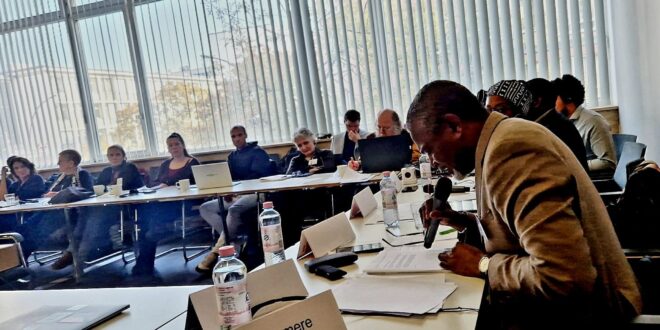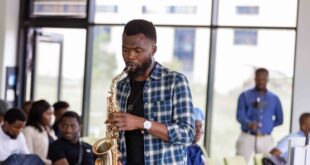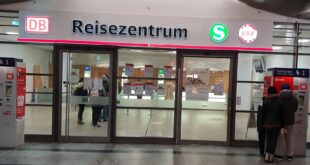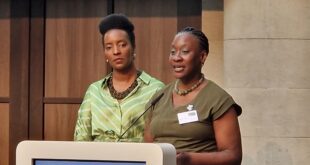The Landesnetzwerk Afrikanischer Vereine (State Network of African Associations or LAV) convened its annual conference on 26 October 2024 in Berlin, where it addressed the topic “The Partnership Between Europe and Africa Amidst Epochal Change.”
Held in the Erika-Hess Hall of the SPD Kurt-Schumacher-Haus, the event drew attendance from representatives of the African diaspora and German citizens interested in Africa.
The congress featured four speakers: Dr Lamine Doumbia from the Institute for Asian and African Studies at Humboldt University; Prof Jakob Emmanuel Mabe, political scientist and philosopher; Paul Sedzro, political scientist at Helmut-Schmidt University and author; and Femi Awoniyi, editor-in-chief of The African Courier and CEO of GAIDI gUG.
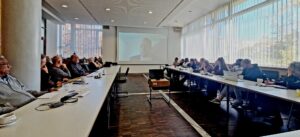
Awoniyi’s presentation, titled “The Role of the African Diaspora in Africa’s Transformation Processes,” served as a highlight of the conference. He elaborated on the substantial potential of the African diaspora to contribute politically, culturally, socially and economically to Africa’s development.
Acknowledging Africa’s challenges, Awoniyi highlighted issues such as the neo-colonial economic structure, whereby the continent exports raw materials and imports finished goods. He blames this structure for the small industrial sector and inefficient agriculture, which are responsible for poverty and high unemployment in the continent.
He argued that the African diaspora communities in Europe and beyond are uniquely positioned to advocate for policies, mobilize resources and promote exchanges to advance Africa’s growth and development.
Political advocacy
Awoniyi emphasized the importance of diaspora communities advocating for African interests on the international stage. He highlighted that diaspora groups could be effective in lobbying European institutions for fair trade policies that benefit African economies.
Additionally, he encouraged diaspora-led initiatives that could bring awareness to European audiences of the impact of European policies on Africa, advocating for a more balanced partnership.
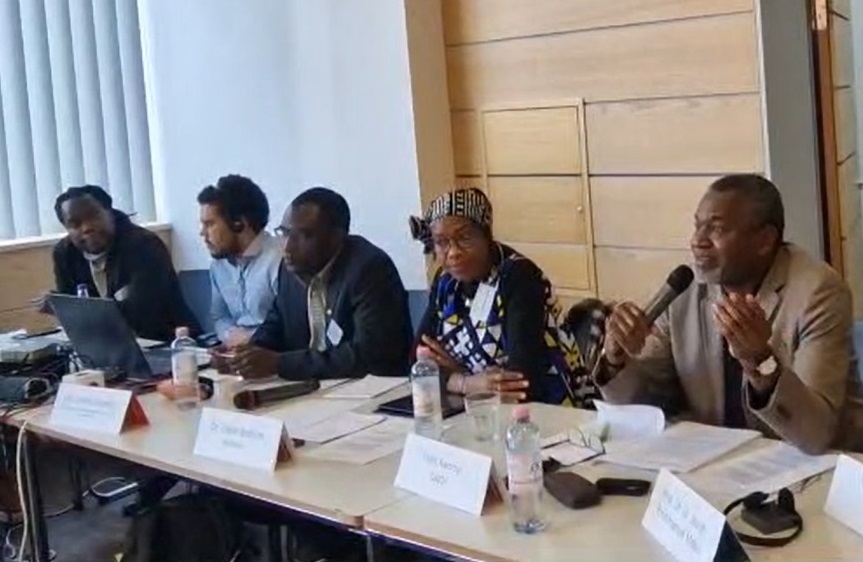
Citing the example of fisheries agreements, he noted how such policies deprive local African communities of their livelihoods and fuel irregular migration to Europe.
Better use of remittances
Awoniyi stressed the need to transform diaspora remittances from contributions targeted at consumption to strategic investments that spur sustainable growth in Africa.
He referenced the African Foundation for Development (AFFORD), a UK-based organization that mobilizes the African diaspora to support job creation and entrepreneurship across Africa.
AFFORD, founded in 1994, has been a pioneer in engaging diaspora communities in development work, facilitating access to markets and offering guidance to African entrepreneurs. Through programs like Diaspora Finance and Investment, AFFORD empowers Africans abroad to leverage their resources to stimulate economic development back home.
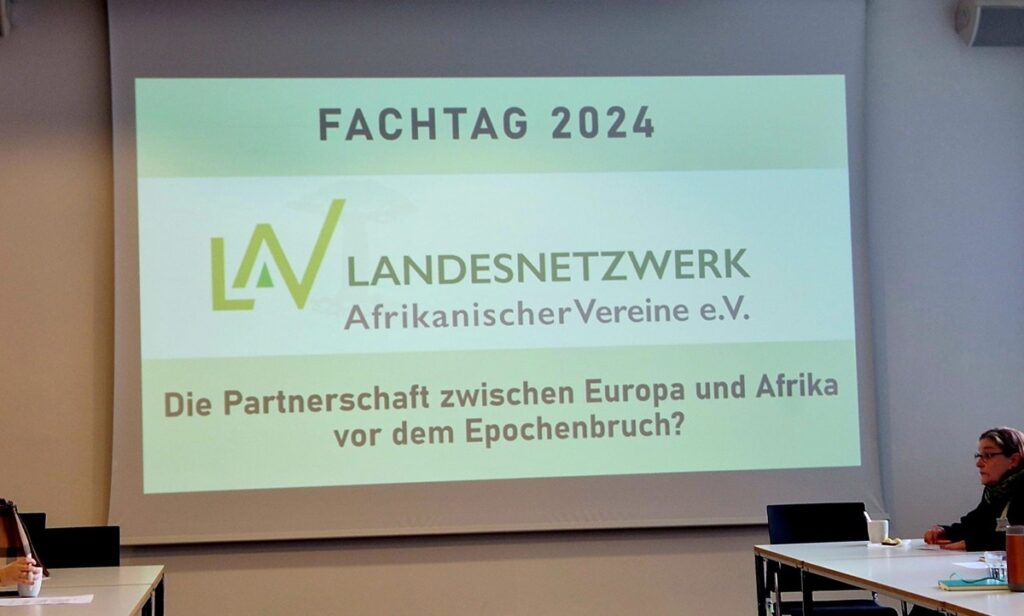
AFFORD’s initiatives align with Awoniyi’s call for a shift in remittance use towards entrepreneurial ventures that contribute to Africa’s economic growth.
Economic Empowerment and Entrepreneurship
Awoniyi underscored the power of diaspora-led entrepreneurship, encouraging diaspora communities to establish businesses that serve Africa’s growing markets. By developing products and services tailored to African needs, such enterprises contribute to local economies and drive technological advancements.
He mentioned startups like Flutterwave and Paystack, founded by members of the diaspora, as examples of companies transforming Africa’s digital economy by facilitating online payments and supporting e-commerce. Such businesses, Awoniyi explained, foster financial inclusion and economic growth, underscoring the critical role of diaspora-driven investment in Africa’s future.
Cultural Exchange and Narrative-Building
Cultural diplomacy was another theme that Awoniyi explored in his presentation, emphasizing that the diaspora plays a significant role in preserving and promoting African heritage. He pointed to the many African festivals in Germany as examples of initiatives that celebrate African identity and promote intercultural understanding.
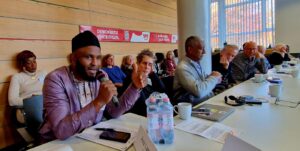
Cultural exchange, he argued, can help break down stereotypes and misconceptions, providing Europeans with a more accurate perspective on Africa’s diverse contributions. By highlighting African art, music and history, these events foster dialogue and help create new market opportunities for African creative industries.
Developmental Engagement
Awoniyi further highlighted the contributions of the Network for African Rural and Urban Development (NARUD), a Germany-based organization that bridges diaspora communities with African countries through developmental projects.
Awoniyi cited NARUD as an exemplary organization, demonstrating the dual role the diaspora can play in supporting African development and enhancing integration within their host countries. Through projects aimed at improving skills, reducing poverty and supporting self-reliance, NARUD connects diaspora members with opportunities to contribute directly to Africa’s development, mirroring Awoniyi’s vision of diasporia engagement as an engine for change.
Recommendations for Future Partnerships
To conclude, Awoniyi outlined recommendations for stronger Africa-Europe partnerships that incorporate the diaspora’s expertise. He called for more significant inclusion of diaspora communities in EU and African official development programs and the establishment of mentorship initiatives that encourage young diaspora members to engage with African markets. By supporting diaspora involvement in reform and development projects, European and African governments could create a mutually beneficial partnership model. He urged both continents to see the African diaspora as a bridge, promoting sustainable collaboration and advocating for policies that serve African interests.
The LAV congress illustrated the transformative potential of the diaspora as advocates for equitable policies, economic empowerment and cultural exchange. Awoniyi’s remarks underscored that the African diaspora is a crucial player in building a collaborative, future-oriented Africa-Europe partnership that values the diaspora’s role as a key stakeholder in Africa’s transformation.
Sola Jolaoso
– LAV, the host of the congress, is a network of African associations in Berlin dedicated to empowering African residents, fostering intercultural understanding and influencing policy on issues pertinent to African communities. Through conferences and other events, LAV provides a platform to address pressing topics like migration, economic cooperation and sustainable development. The congress demonstrated LAV’s commitment to positioning the African diaspora as key stakeholders in African-European partnerships and showcased its role in strengthening the connection between Africa and Europe, supporting diasporia engagement in transformative initiatives.
– NARUD engages in educational, healthcare and vocational training initiatives, aiming to empower communities in Africa while promoting the integration for African immigrants in Germany.
 THE AFRICAN COURIER. Reporting Africa and its Diaspora! The African Courier is an international magazine published in Germany to report on Africa and the Diaspora African experience. The first issue of the bimonthly magazine appeared on the newsstands on 15 February 1998. The African Courier is a communication forum for European-African political, economic and cultural exchanges, and a voice for Africa in Europe.
THE AFRICAN COURIER. Reporting Africa and its Diaspora! The African Courier is an international magazine published in Germany to report on Africa and the Diaspora African experience. The first issue of the bimonthly magazine appeared on the newsstands on 15 February 1998. The African Courier is a communication forum for European-African political, economic and cultural exchanges, and a voice for Africa in Europe.

